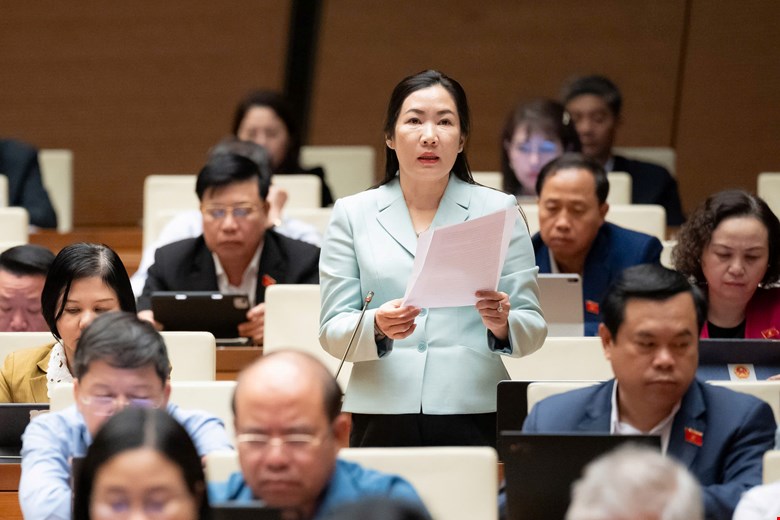On the afternoon of November 25, discussing the draft Law on Drug Prevention and Control (amended), delegate Nguyen Thi Viet Nga (Hai Phong Delegation) commented on the regulation of the first drug rehabilitation period of 24 months and the second period of 36 months. The delegate said that this regulation is correct and necessary for many reasons.
Firstly, this period is consistent with the complete drug rehabilitation process, including: reception, classification; treatment of cluster incidents, detoxification; treatment of mental disorders; education, consultation, behavioral rehabilitation; labor therapy; and the preparation stage for reintegration.
Second, practice shows that short-term drug rehabilitation models in many localities, even for only 3 - 6 months, lead to a very high rate of relapse. Addicts often do not have time to stabilize their physical condition, then psychological and behavioral disorders persist, leading to easy return to use.
Third, synthetic drugs, especially stimulants, currently account for more than 70% of cases, causing long-term brain damage, requiring long-term treatment and recovery.
If we continue to maintain a short period of drug rehabilitation, the law will be behind reality, not having enough tools to protect drug addicts and the community.
Therefore, the regulation of increasing the period of withdrawal from drug addiction is necessary, in line with scientific evidence, contributing to reducing the rate of relapse and improving the quality of withdrawal.
Regarding the regulation that drug addicts aged 12 to under 18 are allowed to have compulsory drug rehabilitation at reform schools, the delegate assessed that this is a policy that demonstrates profound humanity, and is also in line with the International Convention on the Rights of the Child.
According to the delegate, reform schools are an environment that both ensures discipline and has cultural education and vocational education programs. This helps them avoid interruptions in their learning process, avoid self-consciousness, and avoid a criminal environment, which is easy to do when taking children to drug rehabilitation facilities with adults.
The 12-18 age group is a period of incomplete psychology. They are easily lured and enticed. Therefore, the option of sending children to reform schools instead of traditional drug rehabilitation facilities helps protect them from the risk of being affected and exploited by organized crime.

Sharing the same view, delegate Tran Thi Thu Phuoc - Deputy Director of Quang Ngai Provincial Police (Quang Ngai Delegation) supported the extension of the mandatory drug rehabilitation period, although some opinions said that the extension period was too long and cost the budget.
She argued that in reality, the short treatment time (from 6 to 12 months) is very low in effectiveness and the rate of relapse is very high.
The reason is that students do not have enough time to recover their brains, change their behavior and receive professional training in a systematic way after the five mandatory drug rehabilitation stages.
The delegate emphasized that although the extension of time is costly in the short term, it will "standing at the demand source for a long time," reduce crimes arising from addiction, and ensure security and order. The delegate considered this an investment cost for safety and society.
The delegate also supported the regulation on sending drug addicts of this age to reform schools for compulsory drug rehabilitation when they are in one of the cases specified in Clause 1, Article 35.
According to the delegate, the environment in reform schools managed by the Ministry of Public Security not only ensures strict discipline to reduce addiction, but also has conditions to organize cultural and vocational training much better than general drug rehabilitation facilities.
Being admitted to a reform school will help them separate from the bad environment, both to quit addiction and to be educated, and better prepare for community reintegration.











